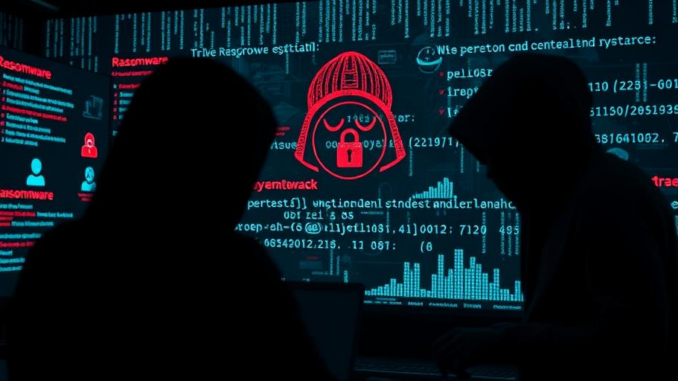
Summary
The Sarcoma ransomware group claims responsibility for an attack on Unimicron, a leading printed circuit board manufacturer. The group threatens to leak stolen data unless a ransom is paid, highlighting the ongoing threat of ransomware to global businesses. Unimicron confirms the attack but downplays its impact, stating they have engaged a cybersecurity firm and implemented defensive measures.
Explore the data solution with built-in protection against ransomware TrueNAS.
Main Story
So, there’s been another ransomware attack, and this one’s hit Unimicron, you know, the big PCB manufacturer. Apparently, the Sarcoma group is claiming responsibility. They’re saying they swiped a massive 377 GB of data, SQL files, confidential documents, the whole shebang. And, of course, they’re threatening to leak it all if Unimicron doesn’t pony up the ransom. It just goes to show how these ransomware attacks are really ramping up, especially targeting critical infrastructure. It’s worrying, isn’t it?
Unimicron’s Response: Damage Control?
Unimicron’s admitted to the attack, saying it impacted their Shenzhen subsidiary back on January 30th, 2025. They’re downplaying the overall impact, though, which makes you wonder. They say they’ve brought in a cybersecurity team to investigate and beef up their defenses. But here’s the thing: even though Unimicron hasn’t officially confirmed a data breach, there are samples of their sensitive data floating around on Sarcoma’s dark web page. So, it’s not looking good, is it?
Sarcoma: A New Player with a Vengeance
Sarcoma is a relatively new ransomware group, only popping up around October 2024. But don’t let that fool you. They’ve already hit almost 70 organizations in a matter of months. Cybersecurity experts are calling them one of the fastest-growing ransomware threats out there. And the worst thing is their methods; phishing emails, zero-day exploits, even supply chain intrusions. While they could have been better at keeping their tracks covered, nobody knows exactly where they came from. How is that even possible?
Cybersecurity Preparedness: No Longer Optional
This whole Unimicron situation is a blaring klaxon. Companies, big and small, need to take cybersecurity seriously. A ransomware attack? It can be devastating. Think financial hits, operations grinding to a halt, not to mention the damage to your reputation, and the potential legal headaches. I remember when a local startup suffered from a similar attack, they never recovered. They just couldn’t handle the hit to their reputation. So, what can you do? You need proactive cybersecurity strategies. Data backups, strong security software, employee training, and a rock-solid incident response plan, that’s the key. The cybersecurity landscape is constantly shifting, and staying informed is key.
The Future: A Collective Fight
Ransomware attacks aren’t going anywhere; in fact, they will only get worse. Businesses have to make cybersecurity a core priority. Think about investing in advanced security tech: threat intelligence platforms, AI-powered defenses. These can spot and stop attacks before they cripple your business. But, businesses, governments, and cybersecurity experts need to work together. Only by working together can we hope to stay one step ahead of these evolving threats and defend our digital infrastructure. And let’s be honest, the sooner we work together, the better.


Given Sarcoma’s rapid growth and diverse attack methods, what specific threat intelligence sharing mechanisms could be implemented to enhance collective defense among businesses and cybersecurity experts? What incentives would encourage participation?
That’s a great question! I think establishing a secure, anonymized platform for sharing indicators of compromise (IOCs) would be a good start. Perhaps offering tiered access based on contribution levels could incentivize participation. What are your thoughts on using blockchain for secure data sharing?
Editor: StorageTech.News
Thank you to our Sponsor Esdebe